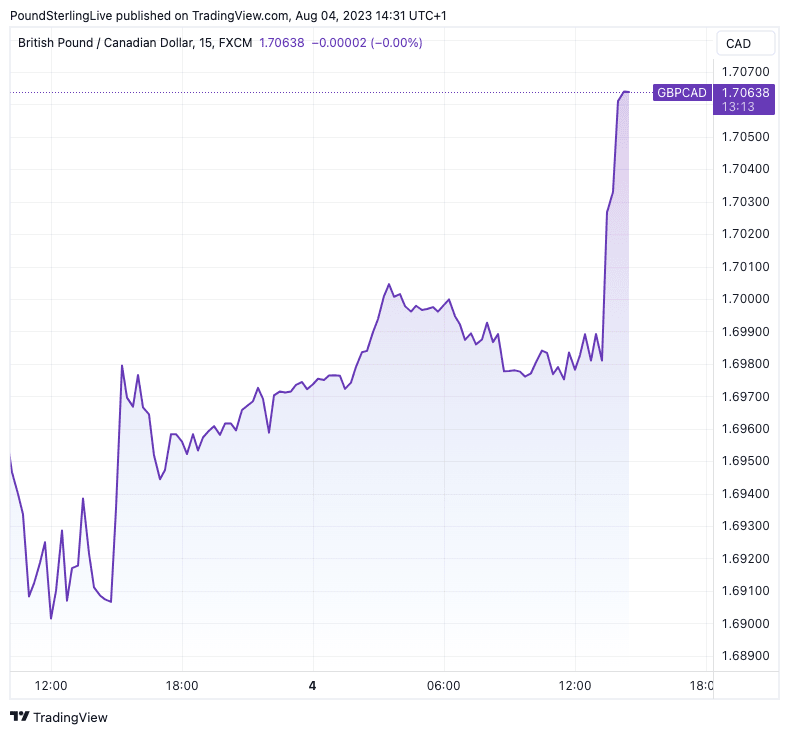Canadian Dollar Lower on Canada's Job Data Undershoot
- Written by: Gary Howes

Image © Bank of Canada
The Pound to Canadian Dollar exchange rate (GBPCAD) rose on news Canada shed jobs in July, but the upside will prove potentially limited due to a bumper increase in wage settlements.
The Canadian Dollar was broadly softer after Statistics Canada said employment fell 6K in July, a small downtick, but it was nevertheless far below the positive 21.1K the market was expecting.
This undershoot on expectation triggered a retreat in expectations for further rate hikes at the Bank of Canada which in turn weighed on Canadian bond yields and the CAD.
But Canadian Dollar downside could be limited by a spike in wages of 5% in the year to July, which represents a rapid increase on the previous reading of 3.9% and could yet concern the Bank of Canada as it is an inflationary development.
"As is often the case, today's employment report brought mixed messages for the Bank of Canada, with the job count declining unexpectedly but wage growth accelerating much more than anticipated," says Andrew Grantham, an economist at CIBC Capital Markets. "Today's data is unlikely to convince the Bank of Canada that the labour market has loosened enough yet to sustainably achieve its 2% CPI target, despite the weaker headline jobs count."
Despite the mixed messages the verdict provided by the market (lower CAD) is that the fall in employment will likely mean the longevity of such bumper wage increases is distinctly limited.
"The Bank of Canada will closely monitor wages for signs of additional inflationary pressures, but higher unemployment rates mean broader underlying wage pressures are easing," says Carrie Freestone, an economist at Royal Bank of Canada.
The Pound-Canadian Dollar exchange rate rose half of a per cent to close out the day at 1.7058, the U.S. Dollar-Canadian Dollar exchange rate rose to 1.3388 with upside being negated somewhat by a negative surprise from the U.S. job report which was also released Friday.
Compare GBP to CAD Exchange Rates
Find out how much you could save on your pound to Canadian dollar transfer
Potential saving vs high street banks:
C$4,450.00
Free • No obligation • Takes 2 minutes
Statistics Canada said the employment rate was 62.0% in July, down 0.2 percentage points in the month and little changed on a year-over-year basis.
From January to July, the employment rate fell 0.5 percentage points, as population growth (+1.4%) outpaced growth in employment (+0.7%) over this period.
Canada's unemployment rate rose 0.1 percentage points to 5.5% in July, following increases in May (+0.2 percentage points) and June (+0.2 percentage points).
Statistics Canada said this was the first time the unemployment rate had increased for three consecutive months since the early months of the COVID-19 pandemic.
Above: GBPCAD at 15-minute intervals showing the post-jobs report reaction.





